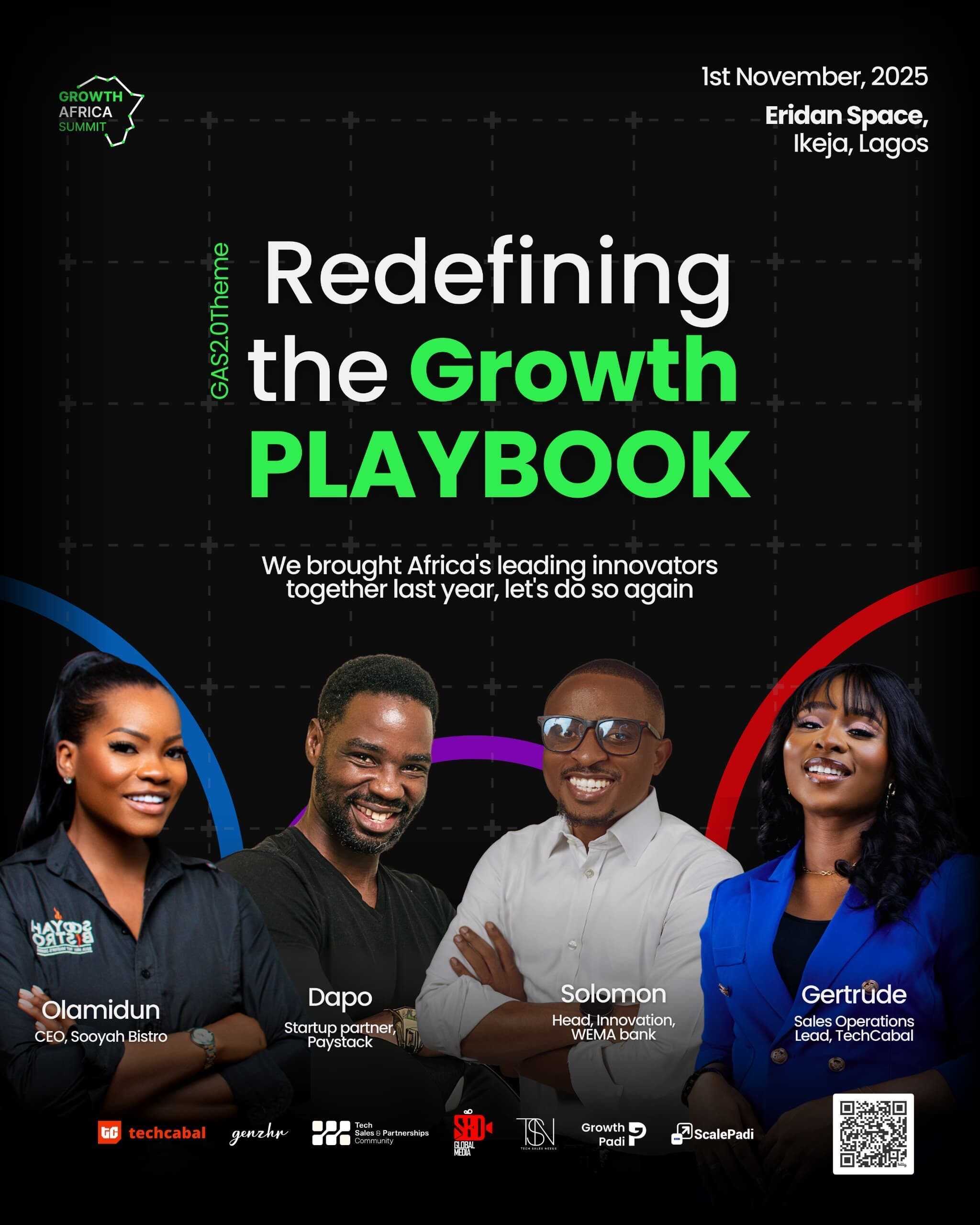

Happy mid-week! 
Tomorrow is salary day. For some, it’s the sweet sound of “alert received.” For others, it’s just money passing through like a guest who refuses to sit down. But before you send your entire paycheck to the landlord, clear Jumia carts, or attend yet another “urgent” family group chat request, remember to keep a little aside for yourself.
Specifically for Moonshot by TechCabal, the most important tech event of the year, happening October 15–16, 2025. This is probably the last salary you’ll get before the big week, so consider it your friendly reminder to budget like the visionary you are.
Go grab tickets here as soon as you get the cha-ching notification, superstar.
Let’s dive in.

companies
South Africa slammed with chip export boycott

Taiwan has slapped restrictions on chip exports to South Africa, citing national security concerns.
Here’s the real tea  : It all started when the South African government renamed, tried to downgrade Taiwanese mission offices in Pretoria and Cape Town. This came after the Vice President, Paul Mashatile, visited China. Taiwan claims that South Africa pressured them to relocate out of the country’s capital city in 2023 after hosting an international conference attended by the Chinese President. Taiwan has accused the South African government of undermining its sovereignty and national security by aligning itself closely with China.
: It all started when the South African government renamed, tried to downgrade Taiwanese mission offices in Pretoria and Cape Town. This came after the Vice President, Paul Mashatile, visited China. Taiwan claims that South Africa pressured them to relocate out of the country’s capital city in 2023 after hosting an international conference attended by the Chinese President. Taiwan has accused the South African government of undermining its sovereignty and national security by aligning itself closely with China.
In a retaliatory move, Taiwan decided to use its economic leverage in global chip markets to impose restrictions on exports to South Africa. Taiwan now requires pre-approval for the bulk of chips sold to the nation.
What are these chips? They are tiny circuits that power just about anything: iPhones, laptops, Android devices, NVIDIA graphics cards, cars, and WiFi routers. The Taiwan Semiconductor Manufacturing Company (TSMC) makes most of the world’s advanced chips.
Don’t be nervous. Most chip-infused products that South Africans buy arrive from assembly plants in China, India, or Europe, already loaded with the chips. Restrictions won’t mean the shelves suddenly go empty.
Taiwan has little practical leverage to block chips once they are embedded in consumer products. This move was more of a power flex and less about circuits. Today, it’s chips. Tomorrow, it could be something bigger. One thing is clear: South Africa now sits squarely in the crossfire between two feuding nations.
eCommerce Without Borders: Get Paid Faster Worldwide

Whether you sell in Lagos or Nairobi, customers want local ways to pay. Let shoppers check out in their local currency, using cards, bank transfers, or mobile money. Set up seamless payments for your global online store with Fincra today.
Banking
DTB Kenya exits Burundi after 16 Years, sells 84% stake to local investors

A Kenyan bank is bowing out of an international market, while bigger traditional lenders like Equity and KCB are shuffling to Ethiopia.
Diamond Trust Bank (DTB), Kenya’s ninth largest bank by assets, is selling its 83.67% stake in DTB Burundi, marking an exit from the market after 16 years. DTB sold to a consortium that included several Burundian investors, signalling the intent to localise the bank. DTB’s board approved the deal on September 20.
Why does this matter? The sale aligns with DTB’s strategy to focus on its core markets: Kenya, Uganda, and Tanzania. The sale comes after a minority shareholder expressed interest in increasing its stake in the subsidiary, suggesting local investors see opportunities where the Kenyan parent doesn’t. It also reflects a broader trend of banks pulling back from smaller, challenging markets to focus resources on larger, more profitable operations. At least nine international banks have withdrawn operations from 32 African countries.
Between the lines: When banks start retreating from expansion markets, it usually signals either operational challenges or better opportunities elsewhere. As competition intensifies and margins compress, banks are choosing depth over breadth, concentrating on markets where they can achieve real scale.
Paga is in USA

Big news! Paga Group is now live in the United States, with digital banking services designed for Africa’s diaspora! Eligible users can send, pay, and bank in US Dollars & Naira, safe, regulated, and borderless. Learn more
Mobility
Hyundai says no to South Africa’s EV future

It’s not only Taiwan that sees no future in South Africa.
Hyundai, the multinational car manufacturer, has joined the chorus. Its local CEO, Stanley Anderson, has flatly declared that electric vehicles (EVs) aren’t viable in the country. The brand sells electric cars across Europe, the US, and South Korea. However, in South Africa, less than 1% of sales are electric, and Anderson doesn’t see that changing.
But others disagree: Carmakers are still rolling out new EVs. South African Bank, Absa, says adoption will accelerate as costs fall. South Africa’s EV market, projected to reach $102 million in 2025, may be small compared to global markets like China, whose EV market is projected to surpass $557 billion in 2025. However, the country leads the continent as one of the largest EV adopters.
So, why is Hyundai different? It may be a price factor. Some EVs in South Africa are priced as low as $22,000, like the newly-launched BYD Dolphin Surf. The Hyundai Kona Electric, which has a slightly higher battery of 39.2 kWh (compared to BYD Dolphin Surf Dynamic’s 38.8 kWh), sells for about $40,000 in South Africa.
Hyundai’s stance highlights the divide that some automobile companies see South Africa as a testing ground for affordable EVs, while others see it as a market too small and too risky.
Turn your hustle into an online store with Paystack!

Anyone can sell online. With Paystack Storefront, you can create a sleek online store, share your link, and accept payments. No code needed. Get started here →
Companies
Watu, the Kenyan buy-now-pay-later company, aims for $340 million revenue

Kenyan buy-now-pay-later (BNPL) company Watu is targeting $340 million in revenue for 2025, nearly tripling the amount from 2023 in the last two years alone. Previously known for swinging for the pockets of boda boda (motorcycle) riders, Watu is deepening its smartphone financing business. The company’s active loan book tripled to 1.9 million in 2024, with phone financing now driving most new business.
What are the numbers? In 2024, Watu’s revenue jumped by more than half from the previous year to reach $231 million, but profits crashed by 85% to just $1.2 million, revealing the challenges of loan defaults. The company plans to finance over two million smartphones in 2025.
Why does this matter? Smartphones are becoming essential tools for economic participation in Africa, but most people can’t afford the upfront cost. Watu’s model allows informal workers and low-income earners to buy smartphones and pay in installments, unlocking access to digital banking, e-commerce, and income opportunities.
The big picture: Competition from other BNPL players like M-KOPA and others is intensifying, while Watu’s core customers face income uncertainty that makes repayment unpredictable. If successful, Watu could promote smartphone access across Africa. But the 85% profit drop shows that lending to the “bottom of the pyramid” remains a tough business model, even with essential products like smartphones.
Why do Nigerian graduates fail to find jobs? Find out in Nexford’s article

Millions graduate yearly in Nigeria, yet jobs remain scarce. Many lack the right skills, while those who have them struggle with poor pay or move abroad. What’s the real issue? Read more on Nexford.
HOT TAKE!
The US H1-B visa is all over the news and it ties back to Africa on every front you can think of: talent, remittances, startup funding, emigration trends, and diaspora networks.
It leaves us richer in some ways. Talents who can no longer take the US route may return home to integrate into local ecosystems, or they may redirect to new destinations, such as Canada and the UK. But the US remains a powerful magnet, a mature hub that still draws many of Africa’s highly skilled workers. The policy may slow the pace of exodus, but it will not stop the determined ones.
“Even [Trump’s new immigration policy] doesn’t mean African talents don’t have other places to go. If they really want to leave, they will find a way, regardless of international policies.”
– Joe Kinvi, founding partner at Hoaq.
Read more on TechCabal today about the H1-B visa and the ripple effects it could have on Africa’s tech ecosystem. We spoke to immigration lawyers, operators, and founders to unpack the story.
CRYPTO TRACKER
The World Wide Web3
Source:

|
Coin Name |
Current Value |
Day |
Month |
|---|---|---|---|
| $112.193 |
– 0.44% |
– 1.03% |
|
| $4,177 |
– 0.80% |
– 12.55% |
|
| $2.83 |
– 0.96% |
– 6.21% |
|
| $214 |
– 2.88% |
+ 3.59% |







Write your views on this post and share it. ConversionConversion EmoticonEmoticon